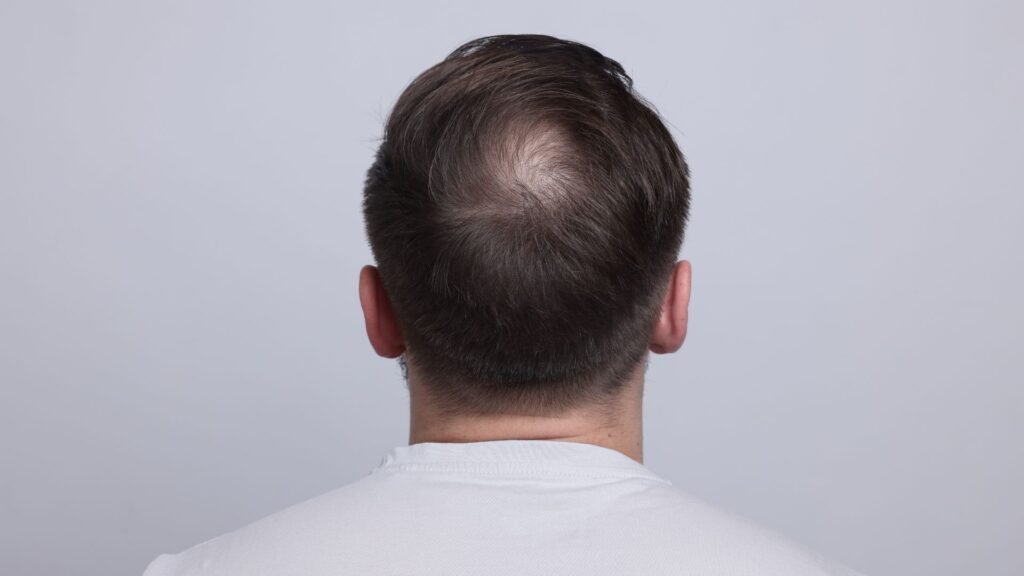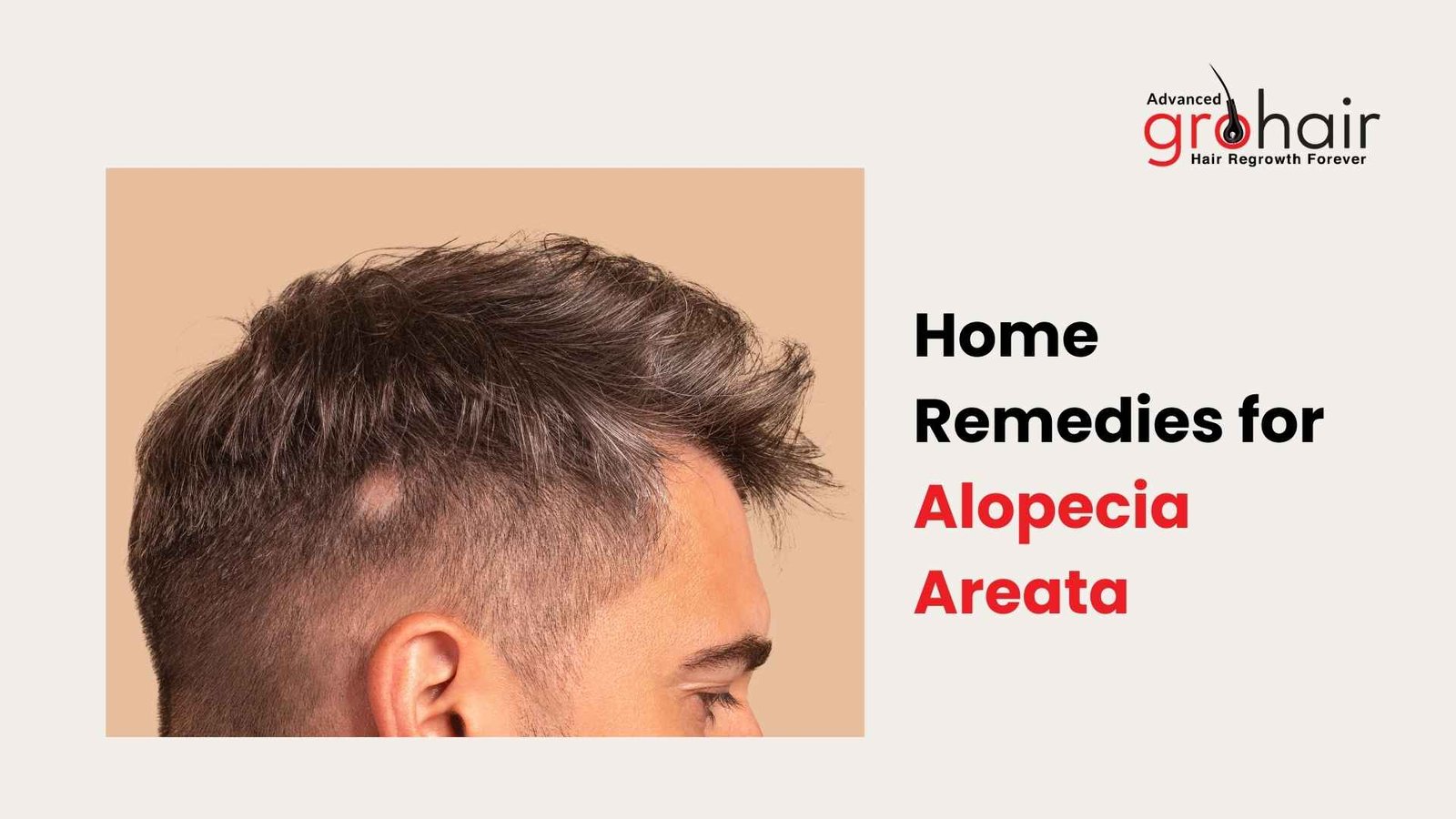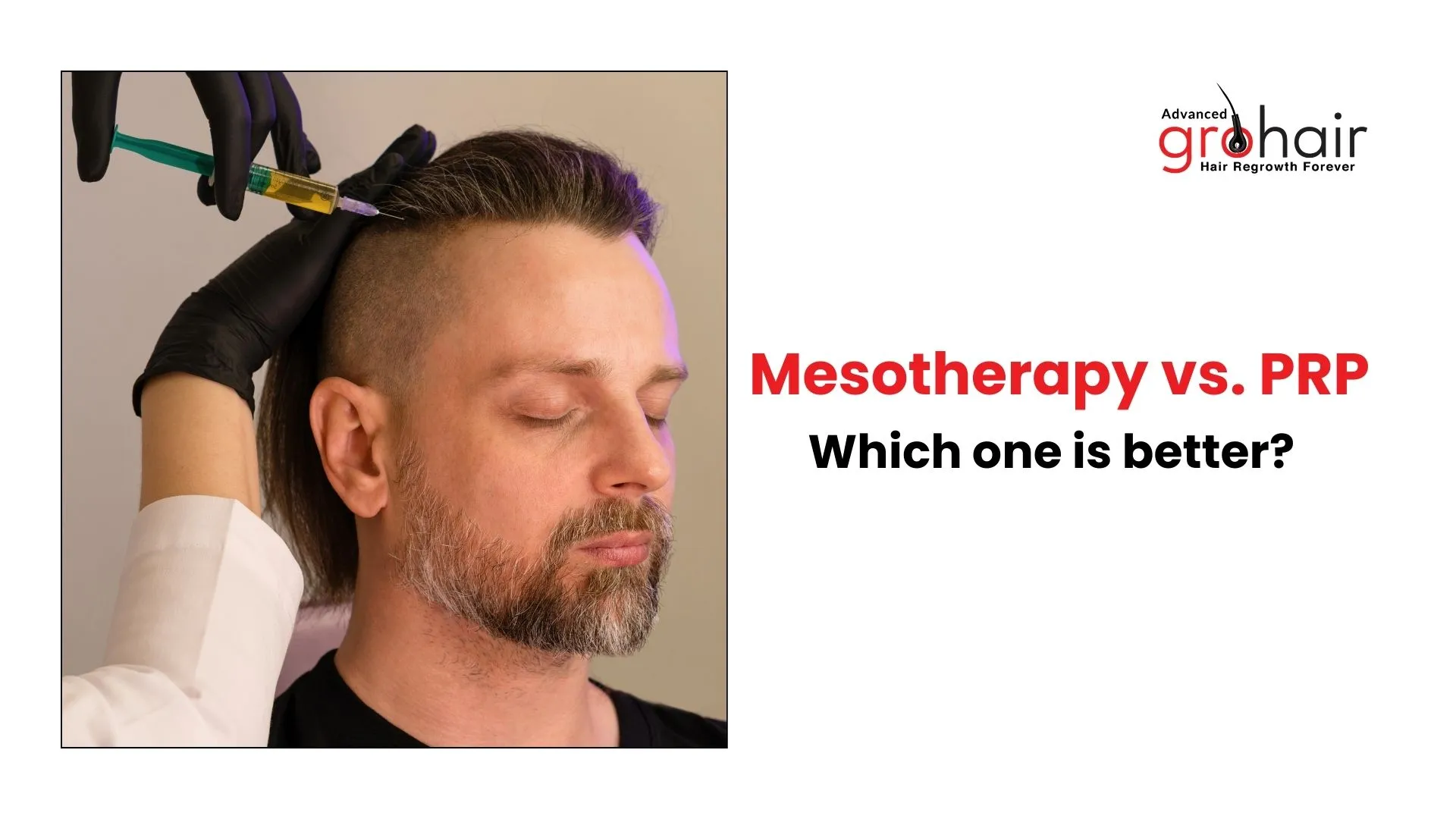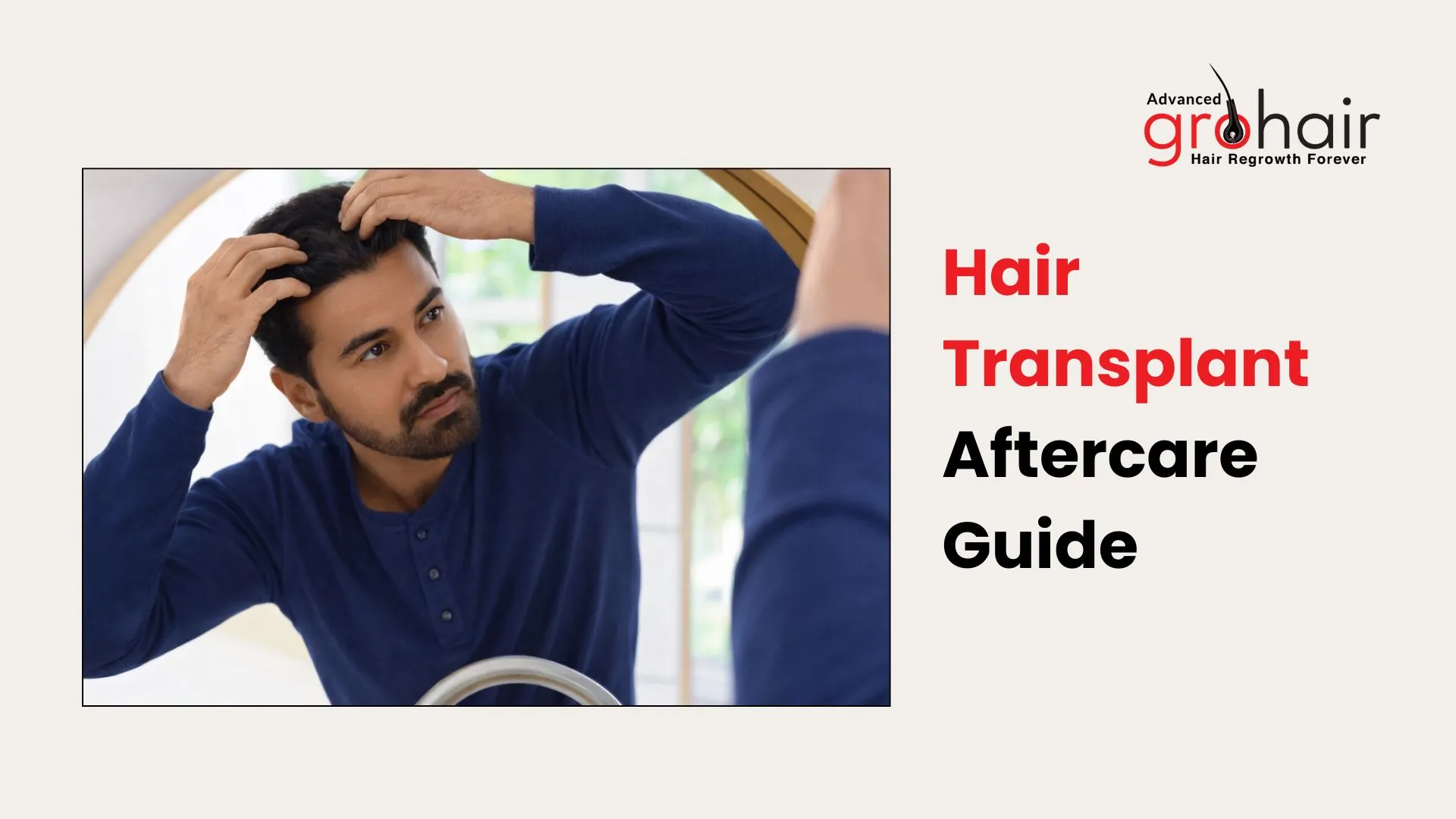Side Effects of DHT Blockers: What No One Warns You About

“It’s just a pill for hair loss. What’s the worst that could happen?”
That’s the usual assumption—until reality hits. Until your mood takes a detour, intimacy feels like a foreign concept, and suddenly, you’re Googling “why can’t I focus anymore?” at 2 a.m.
We’re all quick to pop a pill or try the latest hair loss treatment to prevent hair loss. But let’s hit pause for a moment.
Do we ever pause to wonder, “What’s the fine print?” “What am I really signing up for?” This isn’t about scaring you.
This is about giving you the full picture.
If you’re considering DHT blockers for male pattern baldness or female pattern hair loss—then I advise you to read this blog until the end.
What Are DHT Blockers?
DHT blockers aim to act on DHT (dihydrotestosterone), the hormone causing male pattern baldness and hair thinning. When testosterone converts to DHT, the hormone attaches to hair follicles, resulting in thinning hair.
DHT blockers such as Finasteride function by inhibiting this conversion. They also try to block DHT, retard the growth of hair loss, and even stimulate hair growth in some individuals.
But they’re not a magic pill. Although DHT blockers can delay hair loss, it should be noted that DHT blockers may not always be the full answer for everyone.
Types of DHT Blockers
Here’s where things get a little wild. There are several kinds of DHT blockers out there. But don’t be misled into believing they’re all made equal:
1. Oral DHT Blockers
Finasteride or Dutasteride. These are powerful and work all over the body, not just your scalp. These pills help block DHT and prevent its harmful effects on hair follicles.
2. Topical DHT Blockers
Think shampoos and serums with Ketoconazole, Caffeine, or Azelaic acid. They focus on the target area—your scalp—but with a more localized effect.
3. Natural DHT Blockers
Saw Palmetto, Green Tea Extract, Pumpkin Seed Oil, and Reishi Mushrooms. Gentle, yes—but also unpredictable in their results.
Each one promises a solution, but nothing is as simple as it seems.
How DHT Affects Hair Growth
You’ve probably been told that testosterone makes you manly—and the higher the testosterone, the more hair. But here’s the catch: it’s not testosterone itself, but a hormone called DHT (dihydrotestosterone), which is to blame for much more of the balding.
As soon as your body turns testosterone into DHT, this new hormone is ultra-strong—especially on your scalp.
In people sensitive to DHT (which is mostly genetic), it binds to hair follicles, shrinking them over time. This disrupts the hair growth cycle, leading to thinning hair, delayed regrowth, and eventually, the follicles shut down completely.
So yes—DHT is a hormone, and a powerful one. But here’s where it gets tricky.
It doesn’t just affect scalp hair. It also promotes body hair, beard hair, and other secondary sexual traits. And in some cases, blocking DHT too aggressively could slightly affect these areas too.
Still wondering if DHT is the villain? For people dealing with male pattern baldness or female pattern hair loss, the effect of DHT is undeniable.
It speeds up the progression of hair loss, causes hair thinning, and in some, it’s the number one reason behind hair fall out.
Understanding how your body converts testosterone to DHT helps demystify the process. And the good news? With the correct assistance, you can stop DHT from attaching to your follicles and resume hair development.
Why Talk About DHT Blocker Side Effects?
You’ve heard the hype: DHT blockers can prevent hair loss and even promote hair growth. But DHT blockers are not without their downsides. While they do magic for some, others have side effects that compel them to regret their option.
If you’re using DHT blockers to treat hair loss, it’s important to weigh the risks of side effects, especially since they can impact not just your hair, but your overall health too.
Common Side Effects of DHT Blockers
i. The Usual Suspects
First, the common adverse effects that most people are aware of:
- Erectile dysfunction, decreased libido
- Reduced ejaculation volume
- Mood swings, irritability, or even sadness
- Fatigue, brain fog, and memory lapses
It’s not all in your head—these side effects can sneak up on you after weeks of use. The frustration? They tend to intensify over time. But they’re also directly linked to DHT blockers and their impact on testosterone levels.
ii. Hormonal Side Effects
When you mess with hormones, you’re basically opening a Pandora’s Box. And sometimes, it spills out in ways you didn’t expect:
- For men, it’s not just hair loss—sexual dysfunction and emotional numbness could sneak in.
- For women, the wild ride can include:
- Irregular periods
- Acne flare-ups
- Unwanted facial hair growth (Yep, you read that right)
- Potential risks to fetal development
- Irregular periods
Hormones don’t follow rules. When one falls, the rest start scrambling.
iii. Skin and Hair Changes
Blocking DHT can also mess with other parts of your skin. Maybe you’ll experience:
- Facial or body hair loss (sorry, DHT blockers don’t play favorites)
- Dry, irritated skin
- Thinning or shedding in areas you didn’t expect (hello, back and chest)
And don’t get me started on the dreaded “dread shed”—when your hair falls out faster than you can say “regrowth.”
iv. Rebound Hair Loss
Now, here’s where it gets dramatic. What happens when you stop DHT blockers?
The hair you regrew? It might just fall out again, fast. That’s called rebound shedding. No one talks about this until it happens to you.
But here’s the twist:
- Don’t just quit cold turkey. Taper off gradually, like you’re saying goodbye to a bad ex.
- Consult your doctor, because rapid shedding isn’t just annoying—it could be permanent.
Conclusion: Weighing the Risks Before You Start
DHT blockers can absolutely help prevent hair loss, slow its progression, and in some cases, even reverse the effects of male pattern baldness and female pattern hair loss.
But understanding both the potential side effects and how they work on the hair growth cycle is critical. Especially when dealing with something as personal — and visible — as your hair.
There’s no one-size-fits-all answer. But there is a best next step: consulting professionals who understand DHT, hormone balance, and the full picture of treating hair loss.
The truth is: hair loss isn’t a curse. It’s chemistry. And chemistry? Can be hacked—with the right people guiding you.
So before you panic-Google “best DHT blockers” or self-diagnose thinning hair, remember: your hair deserves strategy, not guesswork. With the help of experts, you can slow down hair loss and focus on regrowing healthier, stronger hair.
FAQs : DHT Blocker Side Effects
Are side effects reversible if I stop using the blocker?
Most of them are, but some, like sexual dysfunction or cognitive changes, might linger—especially after long-term use.
Are natural DHT blockers any better?
They’re gentler and often come with fewer side effects—but don’t expect them to be miracle workers.
Can women safely use DHT blockers?
Yes, but under strict medical supervision. Never take them casually, especially during pregnancy.
Is rebound shedding guaranteed after stopping?
Not guaranteed, but it’s pretty common. Slow down your treatment if you’re thinking of quitting.
What should I do before starting?
Get your hormone levels tested and talk to your doctor. Don’t make this decision on a whim.





